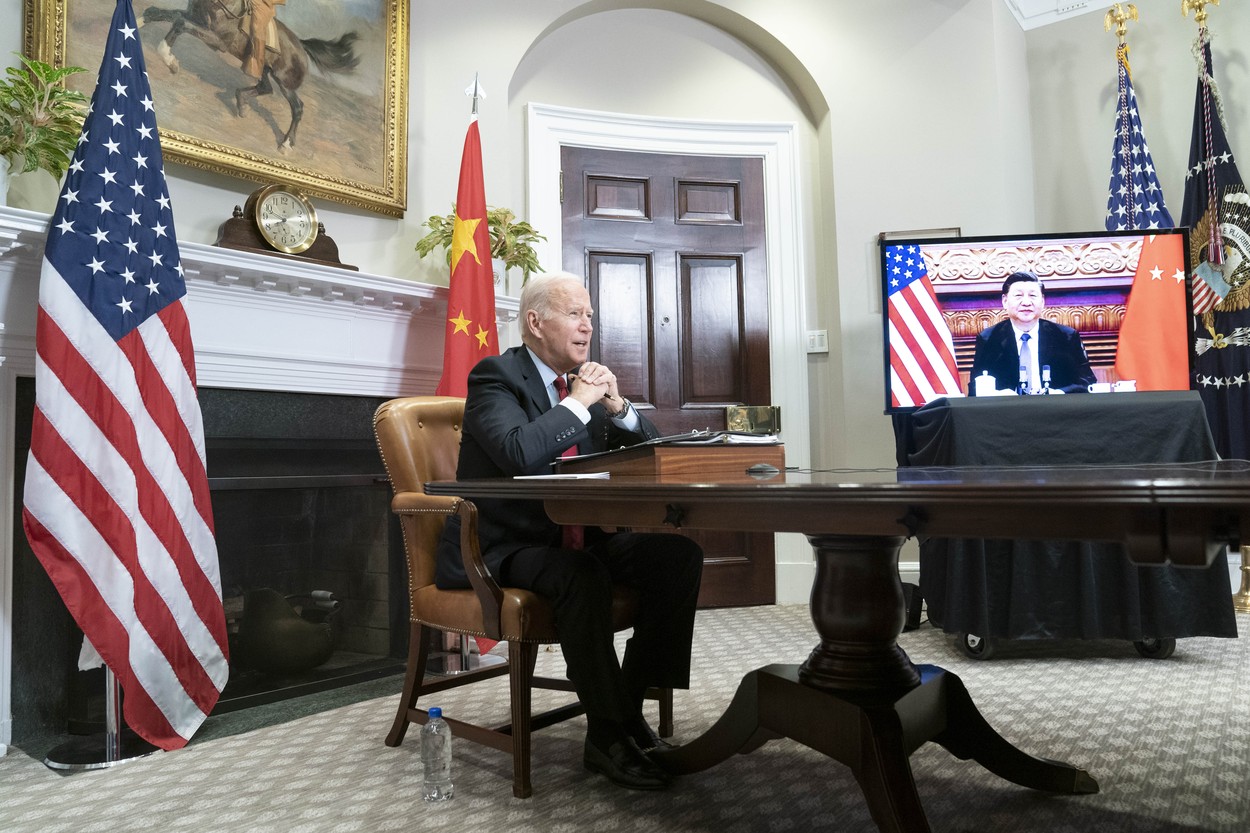
From the “boundless friendship” declared by Xi Jinping and Vladimir Putin last February in Beijing, “questions” and “concerns” about the war in Ukraine were raised by the Chinese at a meeting in Uzbekistan, reports Inside Over.
The strategic partnership between Russia and China is going through an unprecedented phase that coincides, among other things, with the obvious military difficulties facing Moscow in the increasingly complex war in Ukraine.
“We understand your questions and concerns about this, and during today’s meeting we will, of course, explain in detail our position on this issue, although we have talked about it before,” Putin said at the summit of the Cooperation Organization in Uzbekistan. , reports the Russian news agency TASS.
Some signs that things have changed
At the end of the official meeting between Xi and Putin, Beijing did not make any statements regarding the war in Ukraine. In fact, the Chinese report on the meeting made no mention of “Ukraine” or any reference to Sino-Russian “boundless friendship.”
Another potentially telling sign of a delicate situation is the loyalty that Putin wanted to demonstrate to China. “Now the world is going through many changes. The only constant is friendship and mutual trust between Russia and China,” state-run CCTV quoted Putin as saying.

Discussion between Vladimir Putin and Xi Jinping Photo: Mykhailo Metzel / TASS / Profimedia Images
Given all this, there is no doubt that the otherwise inevitable relationship with Moscow is forcing Xi to tread ever more thinly.
While Xi sees Russia as a key ally in a long-term confrontation with the US and NATO, the Chinese president has no intention of isolating himself from the Western bloc, nor is he willing to risk sanctions or other economic problems to be seen as a kind of military aid to Putin.
- Read also: Putin’s big bet. How Russia is trying to redraw the world power map together with China
concerns of China
After more than 200 days of fighting, Russia is facing numerous setbacks in Ukraine. Therefore, it is not surprising that China is concerned about how Moscow’s mission is being carried out. However, it is surprising that it was Putin who acknowledged Beijing’s concerns.
In any case, in recent months “Drakon” avoids open criticism of the Russian partner in connection with Ukraine. Now, however, it is becoming difficult for Beijing to continue on this path.
Indeed, it is becoming increasingly clear that the geopolitical balance in the region has shifted in a direction unfavorable to Putin, or at least no longer in favor of the Russian leader, as it was a few months ago.
Therefore, China is concerned not only about growing international tensions, which could spread from Kyiv to Taiwan, but also about obvious investments made on Ukrainian territory related to the “Belt, One Road” (and which have now gone up in smoke). Xi Jinping may be worried about China’s future.
In addition to China, the Shanghai Cooperation Organization includes Russia, India, Pakistan, Turkey and several post-Soviet states, not to mention Iran, which has signed a memorandum to join the group.
Well, Moscow’s actions in Ukraine could cause a rift between many of its members and the Western bloc. China must take appropriate measures to avoid possible economic repercussions. And isolation, which can be fatal.
- Read also: How China poses a problem in economic relations with Russia: We buy, but only at a discount

Biden and Xi PHOTO: Editorial Shutterstock / Profimedia Images
China’s military aid to Russia did not take place / Trade exchange increased
In addition to Beijing’s lack of direct support for Russia’s military efforts, Chinese state-owned companies have largely avoided signing new contracts with Russian oil producers, despite deep discounts offered by Moscow.
However, China has refused to condemn Russia’s actions in Ukraine and has criticized the West for its unprecedented sanctions against Moscow, saying it is not taking steps to circumvent them.
In addition, trade volumes between Moscow and Beijing increased in the first quarter of the year, and the two sides announced a borderless “partnership” following Russian Foreign Minister Sergei Lavrov’s visit to China in late March.
The West can persuade China not to fully support Russia
Robert Zoellick, former president of the World Bank and former US deputy secretary of state, believes that the United States must do more to recognize the needs and frustrations of countries that are “withholding” and, in cooperation with international institutions, try to respond to those needs. Together with international institutions, Washington could build some bridges of goodwill through vaccines or other health-related initiatives, or by strengthening trade relations.
In addition, he urges the United States to try to persuade China to distance itself from Russia, and the United States to recognize sectors where the interests of Washington and Beijing coincide. “In short, we should avoid the temptation to think of Russia and China as a 1950s conglomerate,” he says. “We have to change things and maybe one day we can form the triangle again.”
Source: Hot News RO
Robert is an experienced journalist who has been covering the automobile industry for over a decade. He has a deep understanding of the latest technologies and trends in the industry and is known for his thorough and in-depth reporting.